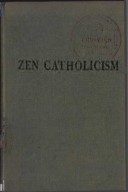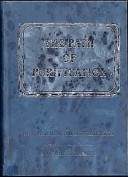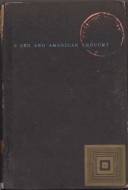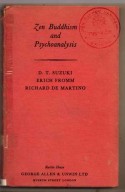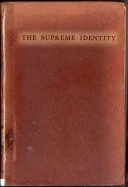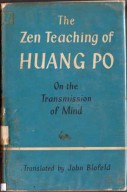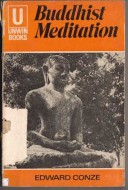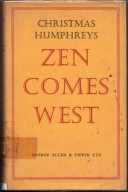Tìm Sách
Sách tiếng Anh-English >> Studies In Philosophy Vol. II
Thông tin tra cứu
- Tên sách : Studies In Philosophy Vol. II
- Tác giả : Krishnachandra Bhattacharyya
- Dịch giả :
- Ngôn ngữ : Anh
- Số trang : 359
- Nhà xuất bản : Progressive Publisher INDIA
- Năm xuất bản : 1958
- Phân loại : Sách tiếng Anh-English
- MCB : 1210000004950
- OPAC :
- Tóm tắt :
EDITOR S PREFACE
The second volume of Studies in Philosophy is now presented after about twenty months since the issue of the First volume. For this inordinate delay the Editor alone is responsible. The Publisher tried his level best to expedite the publication, but owing to a number of circumstances which were beyond the control of the Editor, it was not found possible to bring it out at an earlier date.
This volume contains the fourteen tracts mentioned in the Preface to Vol. I, but in a slightly varied order. As in the case of the other volume, the order is not a chronological one.
In (1) The Subject as Freedom, the author works out his conception of Spiritual Psychology and the theory of the subject as freedom, and attempts to trace out the progressive stages of cognitional freedom. In (2) The Concept of Philosophy we have an analysis of the nature of philosophy and the conception of Philosophy as symbolic thinking not amounting to knowledge. (3) The Concept of the Absolute and its Alternative Forms elaborates the doctrine of the trinal absolute. (4) In Knowledge and Truth, we have an analysis of the distinctive level of consciousness occupied by theory of knowledge and of the theory of the mutual implication of knowledge and truth. (5) Fact and Thought of Fact attempts to give a definition of fact without assuming any fact and seeks to establish the position that fact does not admit of an impersonal definition. (6) In Correction of Error as a Logical Process, the author develops the Advaita theory of illusion and emphasises that correction is an epistemic function without any unitary logical content and that falsity has no reference to the time-position of a cognition. In (7) The False and the Subjective, the author elaborates the thesis that the false and the subjective imply one another. In (8) Some Aspects of Negation, the author presents a non- subjectivistic interpretation of the position that ‘truth is manifold’ and tries to establish that there are radically different types of logic based on incommensurable views of negation. (9) Place of the Indefinite in Logic lays down the thesis that the indefinite is not merely a subjective entity and that logic should find a place for the absolute indefinite. (10) In Definition of, Relation as a Category of Existence, an attempt has been made to formulate a definition of ‘relation’ in purely objective terms as against the subjectivistic interpretation of Green and others. In (11) Objective interpretation of the Percept and Image, an attempt has been made to translate the subjective terms ‘perceived* and ‘un-perceived’ into objective terms. (12) In Reality of the Future, the author develops the thesis that the reality of the future expected on a known ground cannot be said to be an object of knowledge and that the future is real only to will and to faith. (13) The Concept of Value gives an analysis of the concept of value in its different forms, and establishes the position that value is absolute and that speakability of value as information is a necessary illusion. (14)The Studies in Kant gives us a speculative interpretation of a number of Kantian themes. As with the other constructive interpretations contained in Vol. I, we have here also quite a large number of improvisations.
In the Introduction to this volume, the Editor has made an attempt to analyse the major philosophical doctrines of Krishnachandra Bhattacharyya. The analysis has been done, as far as possible, in the author’s own words. This is for two reasons: first, the Editor was not sure that he had got at the exact logic of Krishnachandra’s writings in a large number of places; secondly, and this is to some extent connected with the first, he felt that his own language was far less effective and elegant than that of the author, even when the latter’s manner of presentation was quite thoroughly severe.
The Editor regrets that he has not been able to capture the inspiration or the insight that saturates almost all the writings of his father. It is because of this that he has all along felt that it was presumptuousness on his part to have undertaken this editorial work.
The Editor feels that he would be failing in gratitude if he did not emphasise that all the credit for this publication belongs to his friend, Sri Sushil Kumar Basu of Progressive Publishers. The undertaking would never have been completed but for his unfailing generosity, constant encouragement and spirit of dedication.
The Editor.
TABLE OF CONTENTS
Vol. II.
Editor’s preface
ABBREVIATIONS
EDITOR’S introduction to VOL. II.
I. THE SUBJECT AS FREEDOM
PREFACE
ANALYSIS
TEXT: CH. I. THE NOTION OF SUBJECTIVITY
- II. PSYCHIC FACT
- III. BODILY SUBJECTIVITY (THE BODY AS PERCEIVED AND FELT)
- IV. BODILY SUBJECTIVITY (CONTD.) (knowledge of Absence As A Present fact)
- V. PSYCHIC SUBJECTIVITY (the image)
- VI. PSYCHIC SUBJECTIVITY (CONTD.), (thought)
- VII. SPIRITUAL SUBJECTIVITY (feeling)
- VIII. SPIRITUAL SUBJECTIVITY (CONTD.) (introspection)
- IX. SPIRITUAL SUBJECTIVITY (CONTD.) (beyond introspection)
- X. THE SUBJECT AS FREEDOM
- THE CONCEPT OF PHILOSOPHY
ANALYSIS
TEXT
- THE CONCEPT OF THE ABSOLUTE AND ITS ALTERNATIVE FORMS
ANALYSIS
TEXT
- KNOWLEDGE AND TRUTH
ANALYSIS
TEXT
- FACT AND THOUGHT OF FACT
ANALYSIS
TEXT
- CORRECTION OF ERROR AS A LOGICAL PROCESS
ANALYSIS
TEXT
- THE FALSE AND THE SUBJECTIVE
ANALYSIS
TEXT
- SOME ASPECTS OF NEGATION
ANALYSIS
TEXT
- PLACE OF THE INDEFINITE IN LOGIC
ANALYSIS
TEXT
- THE DEFINITION OF RELATION AS A CATEGORY OF EXISTENCE
ANALYSIS
TEXT
- OBJECTIVE INTERPRETATION OF PERCEPT
AND IMAGE
ANALYSIS
- REALITY OF THE FUTURE
ANALYSIS
TEXT
- THE CONCEPT OF VALUE ANALYSIS
TEXT
- STUDIES IN KANT
TEXT: CH. I. IDEA OF TRANSCENDENTAL PHILOSOPHY
- II. MIND AS PHENOMENON
- III. SENSE AND SENSATION
- IV. SPACE, TIME, AND CAUSALITY
- V. CAUSALITY
- VI. JUDGMENTS OF FACT, VALUE AND OUGHT-TO-BE
- VII. FREEDOM AND MORALITY
ANALYSIS
 Facebook
Facebook
 Google
Google
 Google+
Google+




